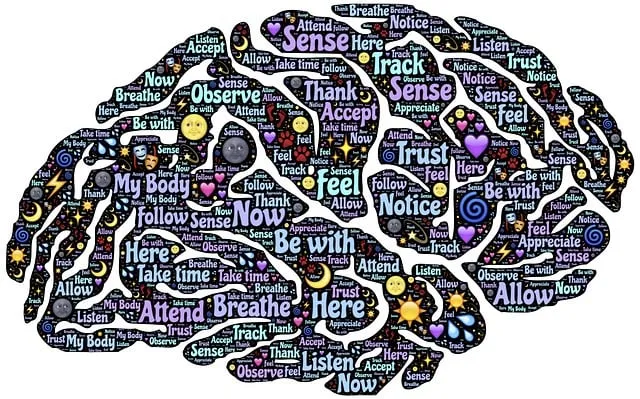The Longmont Kaiser Permanente Mental Health Access Center is a leading provider of specialized trauma care, addressing the complex impacts of trauma through personalized support and evidence-based practices. By educating the community, collaborating with local groups, and offering tailored treatment plans, the center promotes emotional regulation, reduces stigma, and enables individuals to reclaim their well-being after traumatic experiences. With an evolving approach focusing on holistic care, including mindfulness therapies and crisis intervention, the Longmont Kaiser Permanente mental health access center is a vital resource for trauma recovery within the community.
Trauma support services are vital for communities seeking healing and resilience. This article explores the comprehensive approach of the Longmont Kaiser Permanente Mental Health Access Center, a leading provider of trauma-informed care. We delve into the impact of trauma, the center’s role in assessment and treatment, its community engagement strategies, and future challenges. By understanding the foundations of trauma support, we can enhance access to services like those offered by the Longmont Kaiser Permanente mental health access center, ultimately fostering healthier communities.
- Understanding Trauma and Its Impact: A Foundation for Support Services
- The Role of Longmont Kaiser Permanente Mental Health Access Center in Trauma Care
- Assessment and Individualized Treatment Plans for Effective Trauma Support
- Community Engagement and Education: Expanding Reach and Awareness
- Challenges and Future Directions: Continuous Improvement in Trauma Support Services
Understanding Trauma and Its Impact: A Foundation for Support Services

Trauma is a profound and complex experience that can leave lasting effects on individuals’ mental and physical well-being. It’s essential to recognize that trauma doesn’t discriminate; it can impact people from all walks of life, including those who may not immediately identify as having experienced traumatic events. The Longmont Kaiser Permanente Mental Health Access Center plays a pivotal role in providing support services for trauma recovery, ensuring individuals have access to specialized care tailored to their unique needs.
Understanding trauma is the first step in fostering effective support systems. It involves recognizing and addressing the physiological and psychological responses triggered by distressing experiences. By implementing self-care practices and promoting emotional regulation techniques, the center empowers individuals to manage their reactions to traumatic memories or triggers. Moreover, burnout prevention strategies are integral to this process, as they help clients sustain their mental health journey over time.
The Role of Longmont Kaiser Permanente Mental Health Access Center in Trauma Care

The Longmont Kaiser Permanente Mental Health Access Center plays a pivotal role in trauma care within the community. As a dedicated mental health facility, it offers specialized services tailored to individuals who have experienced traumatic events. The center’s expertise lies in providing comprehensive support for emotional regulation and stress management, ensuring that trauma survivors receive the necessary tools to navigate their recovery journey effectively.
Through various programs and initiatives, the access center raises public awareness about trauma and its impact. They develop and implement campaigns aimed at educating the community on recognizing and addressing trauma-related issues. By fostering open conversations about mental health, they encourage individuals to seek help without stigma, promoting a culture of resilience and support for those affected by traumatic experiences.
Assessment and Individualized Treatment Plans for Effective Trauma Support

Effective trauma support requires a nuanced approach starting with thorough assessment to understand the unique needs and experiences of each individual. The Longmont Kaiser Permanente mental health access center prioritizes this process, employing skilled professionals who conduct comprehensive evaluations to identify trauma triggers, coping mechanisms, and underlying psychological impacts. By factoring in personal history, current circumstances, and cultural factors, these assessments inform the development of individualized treatment plans tailored to address specific trauma-related challenges.
One such approach involves integrating evidence-based practices such as cognitive processing therapy (CPT), eye movement desensitization and reprocessing (EMDR), and mindfulness meditation techniques. The center’s focus on Risk Management Planning for Mental Health Professionals ensures that therapists are equipped with the skills to provide safe, supportive environments where clients can process their experiences at a pace comfortable for them. Through this personalized approach, Longmont Kaiser Permanente seeks to promote emotional well-being by empowering individuals to reclaim their lives after trauma.
Community Engagement and Education: Expanding Reach and Awareness

Community engagement is a powerful tool for trauma support services. By actively involving local communities, such as Longmont’s Kaiser Permanente Mental Health Access Center, organizations can expand their reach and raise awareness about mental wellness resources. Educational initiatives focused on promoting mental health literacy and coping skills development are key strategies. These efforts enable folks to recognize the signs of trauma and provide early interventions, potentially preventing issues like depression.
Events, workshops, and partnerships with local schools, community centers, and faith-based groups can help dispel stigma surrounding mental health discussions. Encouraging open conversations and providing practical guidance on journaling exercises or mindfulness practices empowers individuals to take charge of their mental wellness. Such proactive engagement ensures that support services are not only accessible but also tailored to meet the unique needs of diverse communities.
Challenges and Future Directions: Continuous Improvement in Trauma Support Services

Trauma support services face continuous challenges as they strive to meet the evolving needs of individuals seeking healing and recovery. One prominent center, the Longmont Kaiser Permanente Mental Health Access Center, has been at the forefront of providing comprehensive care. However, the landscape of trauma support is dynamic, requiring adaptation to new research findings and community demands.
Looking ahead, future directions emphasize integration of innovative practices like mindfulness-based therapies, enhanced crisis intervention guidance, and programs focused on self-esteem improvement. By fostering inner strength development, these services aim to not only address immediate crises but also empower individuals with long-term coping strategies. This holistic approach ensures that trauma survivors are equipped to navigate life’s challenges while building resilience and a sense of agency.
The article has explored the comprehensive landscape of trauma support services, highlighting the critical role of understanding trauma’s far-reaching impact. The Longmont Kaiser Permanente Mental Health Access Center stands as a beacon of hope, demonstrating the effectiveness of individualized treatment plans in addressing complex trauma. Through community engagement and education, these services can be expanded to reach more individuals in need. As we look ahead, continuous improvement remains paramount, ensuring that trauma support services evolve to meet the diverse needs of our communities, with a focus on enhancing accessibility and outcomes, much like the model provided by Longmont Kaiser Permanente.



